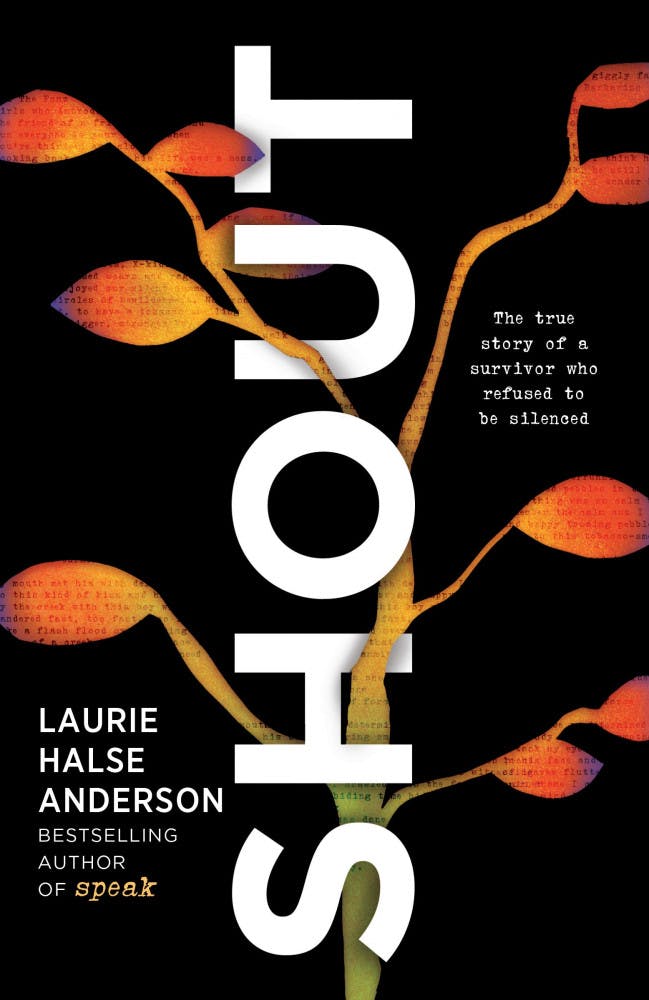Laurie Halse Anderson's book tour has been canceled, but her autobiographical poems are a new entry in 'resilience literature' for young people
By Emma Toscani
Last year marked the 20th anniversary of the publication of a cornerstone book for Young Adult fiction: Laurie Halse Anderson’s first novel, “Speak,” which is about a girl who loses her voice after an assault. Anderson specializes in talking about what is swept under the rug, including sexual assaults, and her new book “SHOUT” continues that theme.
“I like to ask people to strip the word ‘sexual’ off of ‘sexual assault,’ because if you get bashed in the head with a brick by a bad guy as you’re crossing a parking lot, people will come running,” Anderson said.
Anderson said the reason sexual assault is not treated the same as other types of violence is that reporting is clouded by a skewed view of sexuality in popular culture.
“I really wrote [‘Speak’] for myself,” Anderson said. “I was raped when I was 13, and I didn’t tell anybody for 23 years.”
“Speak” was a National Book Award finalist, a Printz Honor book and a New York Times bestseller.
Anderson’s 2009 novel, “Wintergirls,” covers eating disorders, something she had to research because it was not her personal experience.
“I had to decide where was the ethical line,” Anderson said. “I didn’t interview anyone that was actively working through their eating disorder.”
Anderson’s broaching of these hard topics birthed a new type of fiction which Anderson coined “resilience fiction.”
Anderson’s new book, “SHOUT,” is a collection of poems based on her own experience with sexual assault.
Western Professor AnnMarie Sheahan considers the Young Adult genre accessible for everyone, and frequently uses YA books in her classes.
“There’s always something to be said for texts in which adolescents can see themselves reflected in,” Sheahan said. “I think that it is important to be exposed to a large diversity of voices within young adult literature as a young adult.”
While the YA genre is targeted toward middle and high school students, it has a large fan base in older crowds. Anderson said she thinks it’s because YA fiction helps adults go back to the mindset when they had struggles like the ones in Anderson’s books.
Sheahan agrees.
“Some of the best lessons I learned about agency, about community, about identity have been from reading young adult books as an adult,” she said. “I think that it offers something for every age group that reads it.”
Western student and Village Books employee Rielley Rogers has been reading his whole life, and loves YA fiction in particular.
“I feel like YA fiction is a reflection on humanity,” Rogers said. “It’s not just for that YA range, because you can find yourself in any character. It really speaks to issues in the world.”
Rogers said he feels like Anderson’s first book, “Speak,” is more relevant than ever, considering the #MeToo movement. He appreciates how the protagonist, Melinda, uses art to process her trauma after the assault.
“Despite all the trauma that Melinda went through, she was able to use art as an escape from that and to express herself,” Rogers said. “I think that is something we can all learn from, to use art or literature — or whatever — as an escape from all the horrors of the world.”
Anderson recently postponed her book tour, which included a stop at Fairhaven’s Village Books, due to the coronavirus outbreak. Anderson said she still plans to visit Bellingham when she is able.






